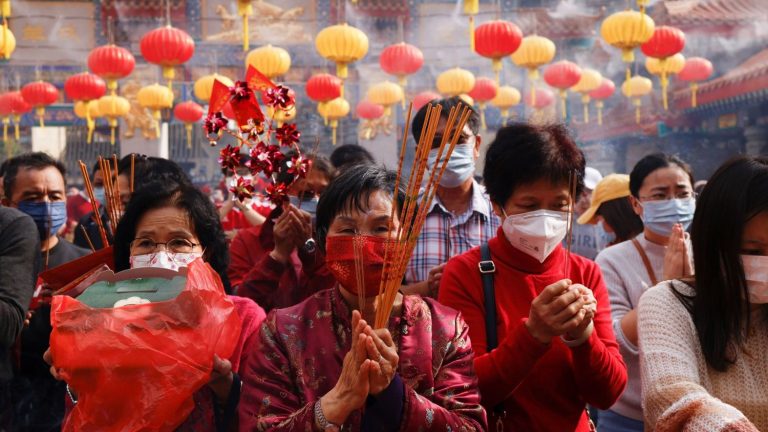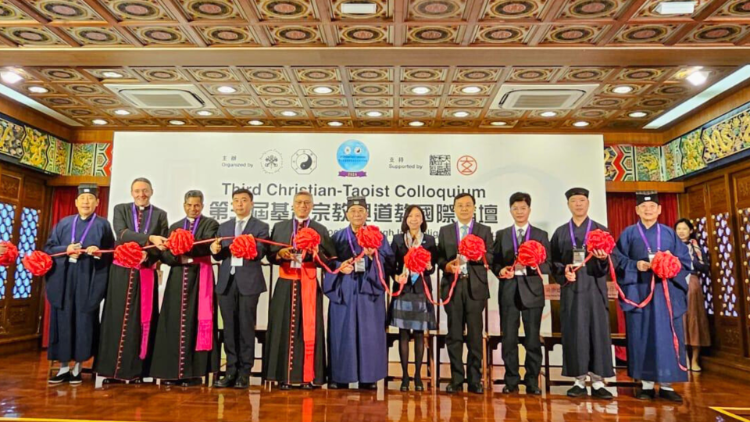As a conference on Christianity and Taoism takes place in Hong Kong, Cardinal Stephen Chow and Mgr. Indunil Kodithuwakku discusses the importance of dialogue between these two ancient religious traditions.
By Joseph Tulloch and Devin Watkins
“Cultivating a harmonious society through interreligious dialogue”.
This is the theme of an ongoing conference in Hong Kong, bringing together Christians and Taoists for three days of reflection and discussion.
The conference – jointly organized by the Vatican Dicastery for Interreligious Dialogue and the Catholic Diocese and Taoist Association of Hong Kong – brought together scholars and experts from across Asia, as well as some European countries.
As the first day of the conference drew to a close, Cardinal Stephen Chow, Bishop of Hong Kong, and Msgr. Indunil Janakaratne Kodithuwakku Kankanamalage, secretary of the Dicastery for Interreligious Dialogue, spoke with Devin Watkins about the points of contact between Christianity and Taoism.
A spirit of shared service
The aim of the conference, Cardinal Chow said, is to “demonstrate how religions can come together to become constructive partners in building our society.”
“The vision of the Taoist religion,” noted the cardinal, “is to foster a movement of the world towards peace and unity, where humanity and the Way – we would say the “Logos – is connected.”
The hope, he added, is that recognizing this spirit of shared service will help “better appreciate the value and meaning of religion in China.”
Matteo Ricci’s dialogue model
The Hong Kong bishop said Christianity and Taoism “share the values of mercy, simplicity and non-aspiration for worldly achievements.”
He stressed the importance of openness to other cultures and religions, emphasizing that “our Catholic Church accepts that they too are blessed – although to different degrees – with divine revelation for the understanding of life. and the spirit of living.
As an example of someone who exemplifies this approach, Cardinal Chow offered the model of Fr. Matteo Ricci, a 16 year oldth18th-century Jesuit missionary, famous for his knowledge of Chinese language and culture.
Fr. Ricci, he said, was “the model for dialogue between religion and culture, integrating the spiritualities of the Confucians, Buddhists and Taoists with our Catholic faith and spirituality.”
“This,” Cardinal Chow noted, “has won much praise and respect from the Chinese people and the Chinese government.”
The spiritual power of dialogue
Bishop Kodithuwakku, for his part, stressed the importance of moments of dialogue in today’s turbulent world.
“As we all know,” he said, “we are going through very difficult times. There is a lack of hope, of frustration.
“Meetings like this therefore communicate a symbolic message to the world that dialogue is possible and that we can sit down and talk, work together and walk together. »
For this reason, Mgr. Kodithuwakku stressed that the currently ongoing Christian-Daoist conference has the potential to “contribute not only to Hong Kong, but also to the world at large.”
The Sri Lankan priest also highlighted the spiritual value of this type of exchange.
“In this kind of dialogue,” he said, “we enter into the mystery of God. Listening to others can help us understand how God has also revealed himself to them… we encounter the sacred mystery of the other.



